
 |
|
ANIMAL DISEASES
Thomas
Yuill
Former director of the Gaylord Nelson Institute for Environmental Studies
(608) 265-5296
tmyuill@facstaff.wisc.edu
Yuill is an expert in the transmission of viral diseases between organisms.
He can discuss the different mechanisms by which diseases spread from one organism
to another, as well as the differences in studying diseases resulting from different
agents - viruses, bacteria and proteins.
|
 |
|
BASIC SCIENCE RESEARCH
Judd
Aiken
Professor of animal health and biomedical sciences, School of Veterinary Medicine
(608) 262-7362
jma@ahabs.wisc.edu
Aiken can discuss research efforts underway to better understand CWD.
Currently, his lab is diagnosing affected deer and identifying molecular similarities
among those infected, as well as studying deer's genetic susceptibility to the disease.
An expert on prion diseases, Aiken can highlight similarities and differences between
CWD and mad cow disease, scrapie in sheep and Creutzfeldt Jakob disease in humans.
|
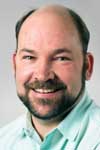
High-res photo
|
 |
|
BASIC SCIENCE RESEARCH
Joel Pedersen
Assistant professor of soil science
(608) 263-4971
joelpedersen@wisc.edu
Pedersen studies the environmental behavior of the CWD agent, specifically
the role of soil as an environmental reservoir for the infective prion. In particular,
he is examining the influence of specific soil components on the degree of persistence,
degradation and transport of the CWD agent. With the help of a Department of Defense
grant, Pedersen hopes to uncover new information relevant to intraspecific transmission
of the disease, disease control efforts, and the disposal of infected carcasses.
|
 |
|
BIG PICTURE ISSUES
Scott
Craven
Chair of the wildlife ecology department, UW-Extension
(608) 263-6325
srcraven@facstaff.wisc.edu
Craven has been working with the DNR on this issue since the first
infected deer was identified in February; he can comment on many aspects of the CWD
situation, including the DNR's response.
Related links:
Processing
Your Deer: Deer processing is no long "business as usual" in Wisconsin
(PDF file, published by UW-Extension)
|
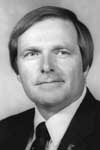
High-res photo
|
 |
|
DEER ECOLOGY AND GENETICS
Nancy
Mathews
Associate professor of wildlife ecology
(608) 263-6697
nemathew@wisc.edu
Mathews studies the social interactions and movement among deer, as
well as deer genetics; she can discuss the role that each topic might play in the
transmission and eradication of CWD.
|
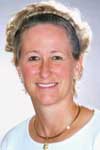
High-res photo
|
 |
|
DIAGNOSTICS
Philip Bochsler
Professor of clinical diagnostics
(608) 262-5432
phil.bochsler@wvdl.wisc.edu
Bochsler is the chief pathologist at the Wisconsin
Veterinary Diagnostic Laboratory who is analyzing tissue samples taken from deer
killed in the eradication zone; he can discuss the techniques used to detect CWD infection.
|
 |
|
DIAGNOSTIC RESOURCES
Robert Shull
Director of the Wisconsin Veterinary Diagnostic
Laboratory
(608) 262-5422
robert.shull@wvdl.wisc.edu
Shull can discuss the resources and methods used and/or needed to
diagnose CWD: personnel, supplies, reagents and space.
Related links:
UW lab to test for deer disease (News release,
Aug. 7, 2002)
|
 |
|
DISEASE ECOLOGY
Thomas
Givnish
Professor of botany, Institute for Environmental Studies
(608) 262-5718
givnish@facstaff.wisc.edu
Givnish is a plant ecologist and an expert on the ecology of diseases.
He can discuss factors influencing the rate of CWD's spread and the impacts it could
have on the environment.
|
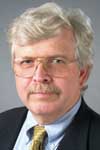
High-res photo
|
 |
|
ECONOMIC RAMIFICATIONS
Richard
Bishop
Chair of the applied and agricultural economics department
(608) 262-8966
bishop@madmail.aae.wisc.edu
Bishop can talk about the possible economic ramifications of CWD on
the hunting industry, as well as the Wisconsin economy.
Related links:
The Economic Effects in
2002 of Chronic Wasting Disease in Wisconsin (PDF file)
|
 |
|
FOOD SAFETY
Barbara
Ingham
Assistant professor of food science, UW-Extension
(608) 263-7383
bhingham@facstaff.wisc.edu
Ingham can address food safety issues relating to a number of transmissible
spongiform encephalopathies, including mad cow disease; guidelines in states where
CWD is endemic; and policies regarding venison donations to food pantries.
|
 |
|
HUMAN HEALTH
Dennis Maki
Professor of medicine and head of infectious diseases
(608) 263-1545
dgmaki@medicine.wisc.edu
Maki can talk about prion diseases in people and the risk of CWD transmission
to people.
|
 |
|
HUNTING
Tom
Heberlein
Professor emeritus of rural sociology and specialist in hunting culture
(608) 695-7086
taheberl@facstaff.wisc.edu
Heberlein can discuss the potential effects of CWD on hunting in Wisconsin
and highlight trends in other states affected by the disease.
|
 |
|
MANAGEMENT
John Cary
Software engineer in the department of wildlife ecology
(608) 263-6710
jrcary@facstaff.wisc.edu
Cary has developed modeling software that estimates the spread and
eradication of CWD based on deer location, social interactions, population hunting
strategies and current data on infected deer. Cary's model is being used by the Wisconsin
Department of Natural Resources to develop appropriate and effective strategies to
manage CWD.
|
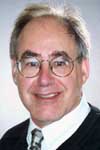
High-res photo
|
 |
|
MEAT PROCESSING
Dennis Buege
Professor of meat and animal science and extension meat specialist, UW-Extension
(608) 262-0555
drbuege@facstaff.wisc.edu
Buege is familiar with the practice of processing deer meat and has
works closely with meat processing plants to devise safe handling measures.
Related links:
Processing
Your Deer: Deer processing is no long "business as usual" in Wisconsin
(PDF file, published by UW-Extension)
|
 |
|
PUBLIC POLICY
Stephen Born
Chair of the urban and regional planning department, UW-Extension
(608) 262-9985
smborn@facstaff.wisc.edu
Born can discuss the issues of public policy from an environmental
management perspective; he can address the role that science, government institutions
and public interest play in managing the deer population.
|
 |
|
WILDLIFE DISEASE ECOLOGY
Michael Samuel
Assistant Unit Leader, Cooperative
Wildlife Research Unit in the Wildlife Ecology
Department
(608) 263-6882
mdsamuel@wisc.edu
Samuel studies wildlife disease ecology and is currently working with
the DNR on transmission of CWD in white-tailed deer, mapping and surveillance for
CWD in Wisconsin and epizootological modeling of CWD. He can discuss factors related
to CWD transmission, patterns of disease spread and potential management strategies.
|



